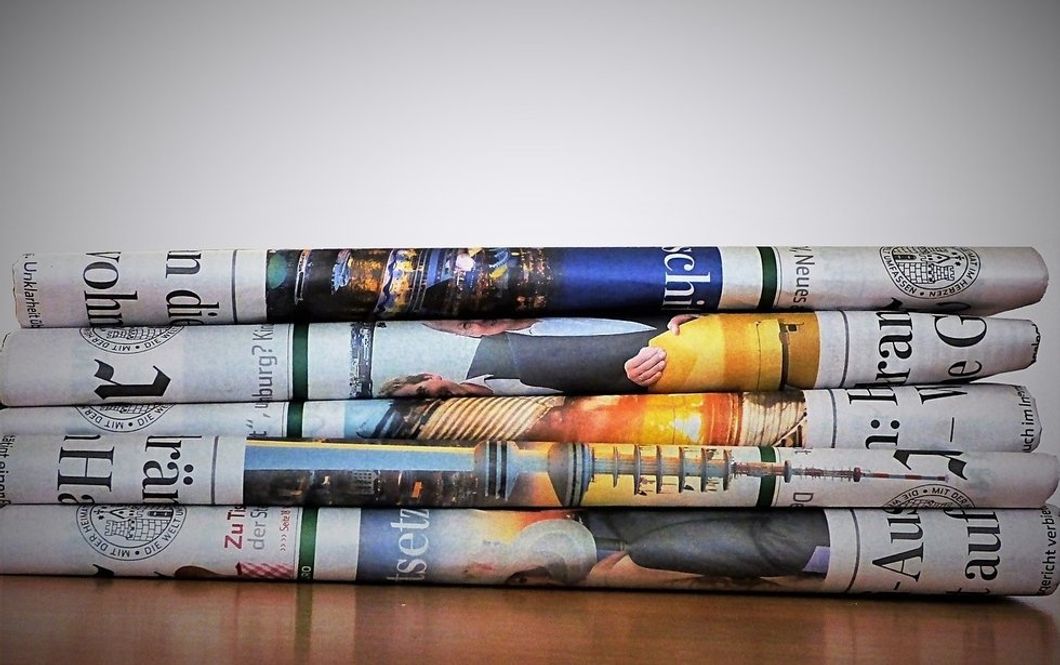Near the end of 2017, I made a resolution/promise to myself that I would do a better job of staying informed in 2018. A year before that, during the election, my news consumption was limited to comparing political candidates and keeping track of the campaign trail. I felt like a lot of the news cycle in 2017 had passed me by and I was worried about not being a truly informed citizen. When it came time to vote again in the 2018 midterms, I wanted to confidently understand the most pressing issues Congress would be tackling.
In the end, however, I felt overwhelmed, anxious and burnt out from the sheer quantity of news I was consuming. Decades ago, before the 24/7 news cycle, you either had to wait for the newspaper, your local television or radio station to keep you up to date. Now, if you wanted to, you could curate every single piece of social media and traditional media to be nothing but news all the time. Even if you don't mean to do so intentionally, it's very easy to suddenly find yourself surrounded by nothing but news wherever you go. That's what happened to me. I subscribed to a few podcasts, followed some reporters on Twitter, subscribed to a handful of news organizations and the next thing I knew, I was overwhelmed.
I think it was around the time of the Christine Blasey Ford Supreme Court hearings that I began to really falter. It felt harder and harder to keep every narrative straight alongside the facts. And keep in mind the media never wholeheartedly focuses on one story at a time. There's always something to talk about.
So at one point, I had had enough. I completely purged the majority of my social media of news organizations, unsubscribed from all news related podcasts and canceled the majority of my news subscriptions. I was ready to completely unplug and return to just paying attention during the campaign trail.
But that didn't feel right. I thought I could disconnect because the policy battles that occur in Congress don't directly affect me. And that's true, I feel like my everyday life is not directly affected by politics, but there are plenty of people in America whose lives are. Just because my livelihood isn't at stake shouldn't absolve my responsibility to remain an informed citizen. So I developed a bit of a manifesto for myself to avoid news-induced anxiety in 2019.
To start, I made sure to establish clear boundaries as to when and where I consume news. Twitter is already habitually my most used app, so that seemed like a proper place to congregate the majority of my online news consumption. Not only can I follow specific reporters but the small, soundbite style that Twitter thrives on helps me keep my news activity at a responsible level. Most reporters tweet out their own articles as well, which gives me an avenue to look at more long-form content if I wish.
I would recommend avoiding Facebook for news at all costs.
Along similar lines, I think it's helpful to choose only a handful of diverse news organizations to stick to. I'm not encouraging people to only stick to one, but if you try and look at a breaking story from every single major news outlet's perspective you're just setting yourself up for burnout on that particular subject. Most outlets will cover large stories the same way save a few nuances in reporting or style. Most news websites offer e-mail newsletters which not can help in deciding which stories are the most important and are worth taking a deeper look into.
Finally, know your limits. One of the biggest mistakes I made when I first sought out on this news catastrophe was trying to stay on top of every little story at every time. As I mentioned earlier, there's always breaking news and stories to discuss. I found that segmenting the news by topic helped tremendously in learning where my limit was. For instance, I found that I was able to consume more tech-related stories because that's something I'm more interested in during my everyday life. On the flip side, I found that complex stories based in the health industry were often harder to consume because of their complex nuances and weighty implications.
The bottom line is while it's still very important to remain an informed citizen, it's almost equally important to do so in a sustainable, long-term manner. While the news cycle may be 24/7, that doesn't mean it's meant to be consumed at the pace too.




 StableDiffusion
StableDiffusion StableDiffusion
StableDiffusion StableDiffusion
StableDiffusion Photo by
Photo by  Photo by
Photo by  Photo by
Photo by 
 Photo by
Photo by  Photo by
Photo by  Photo by
Photo by  Photo by
Photo by  Photo by
Photo by 











